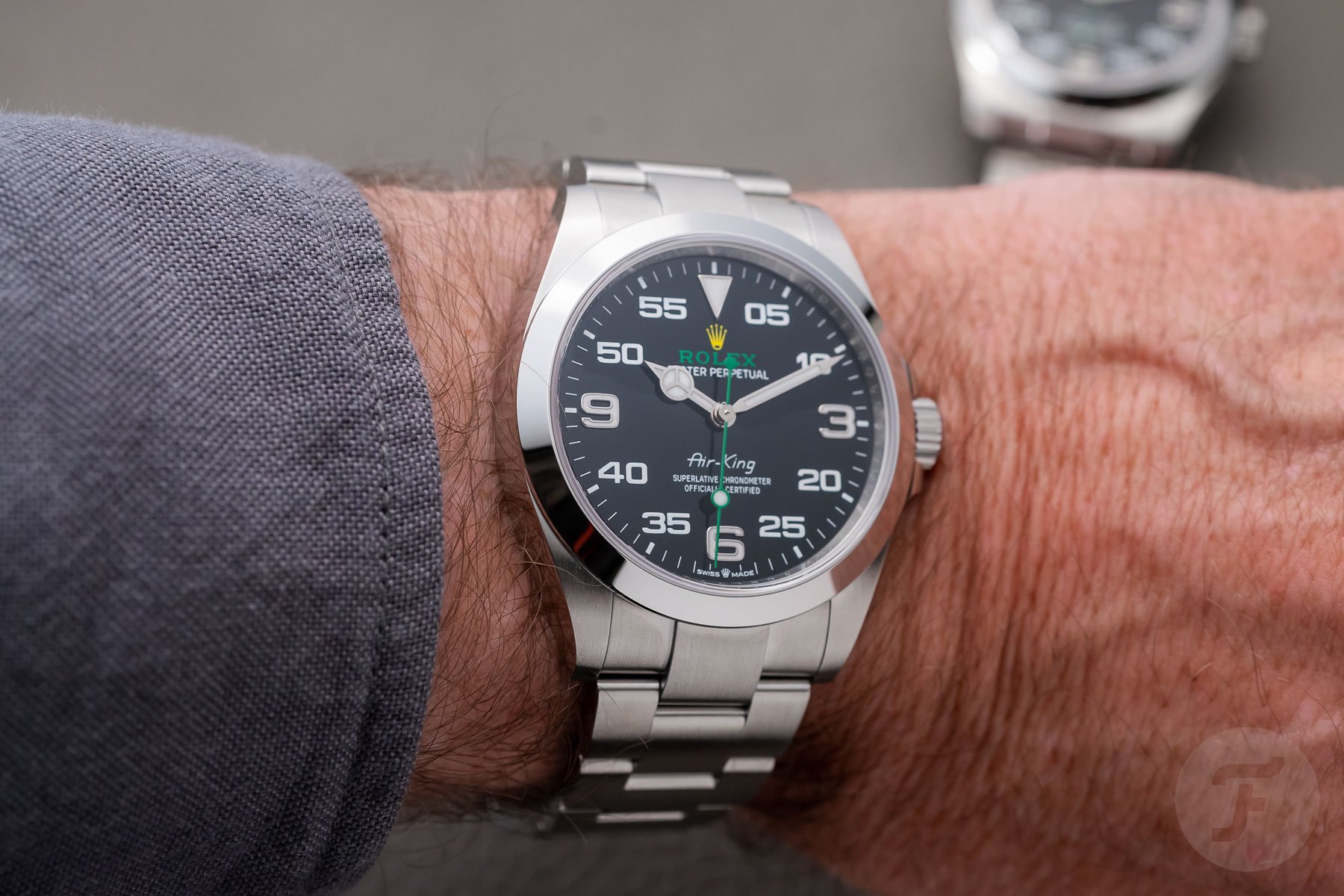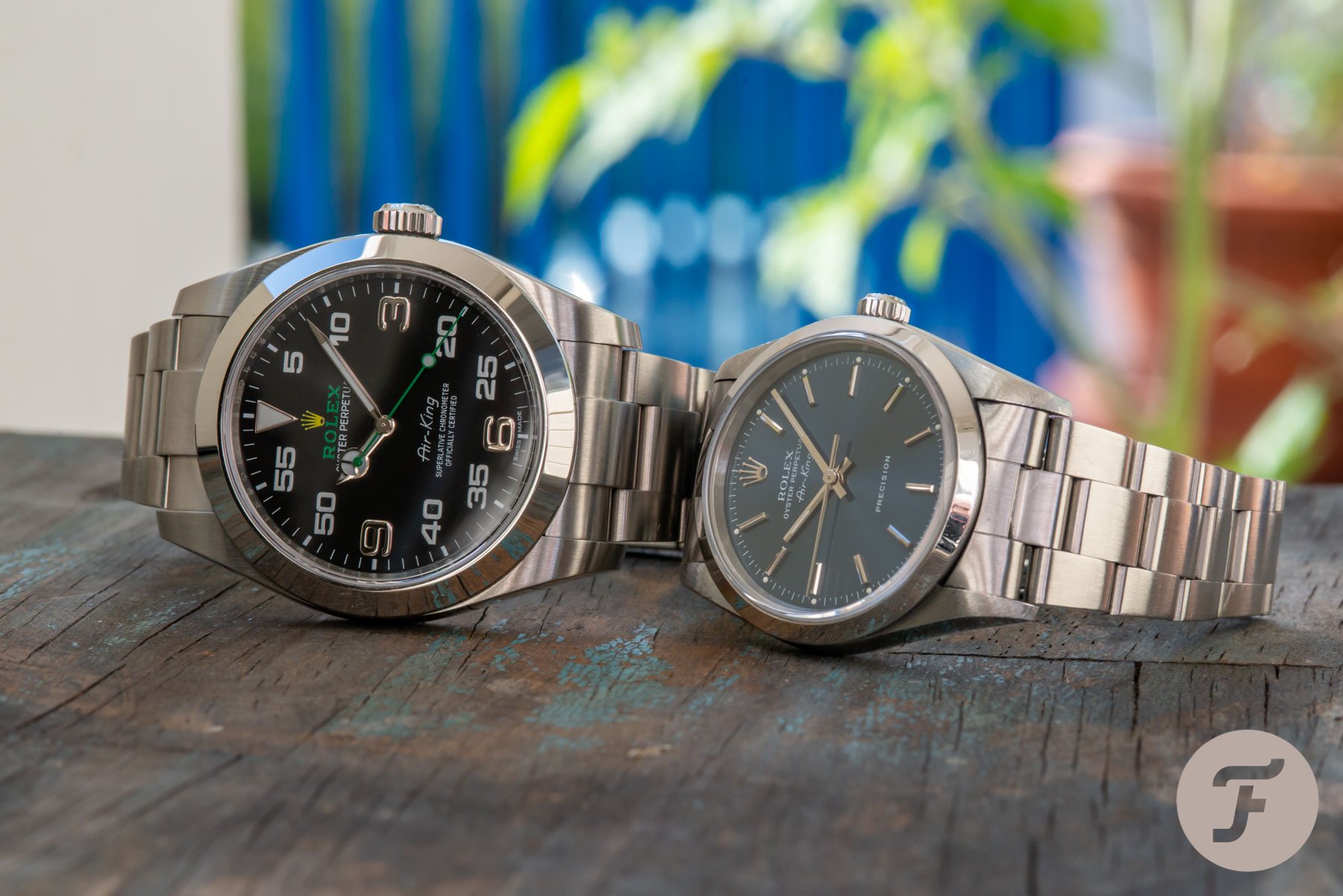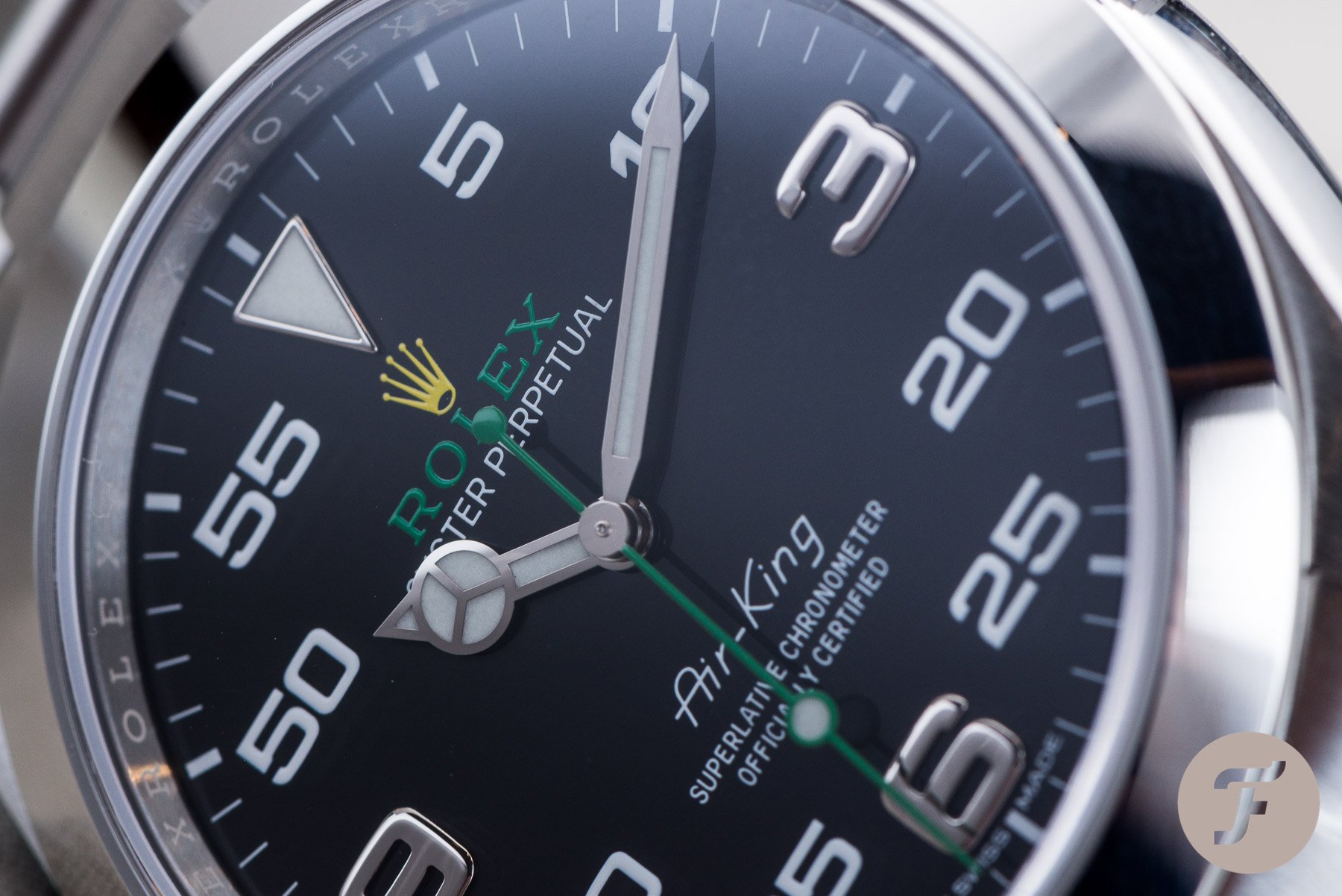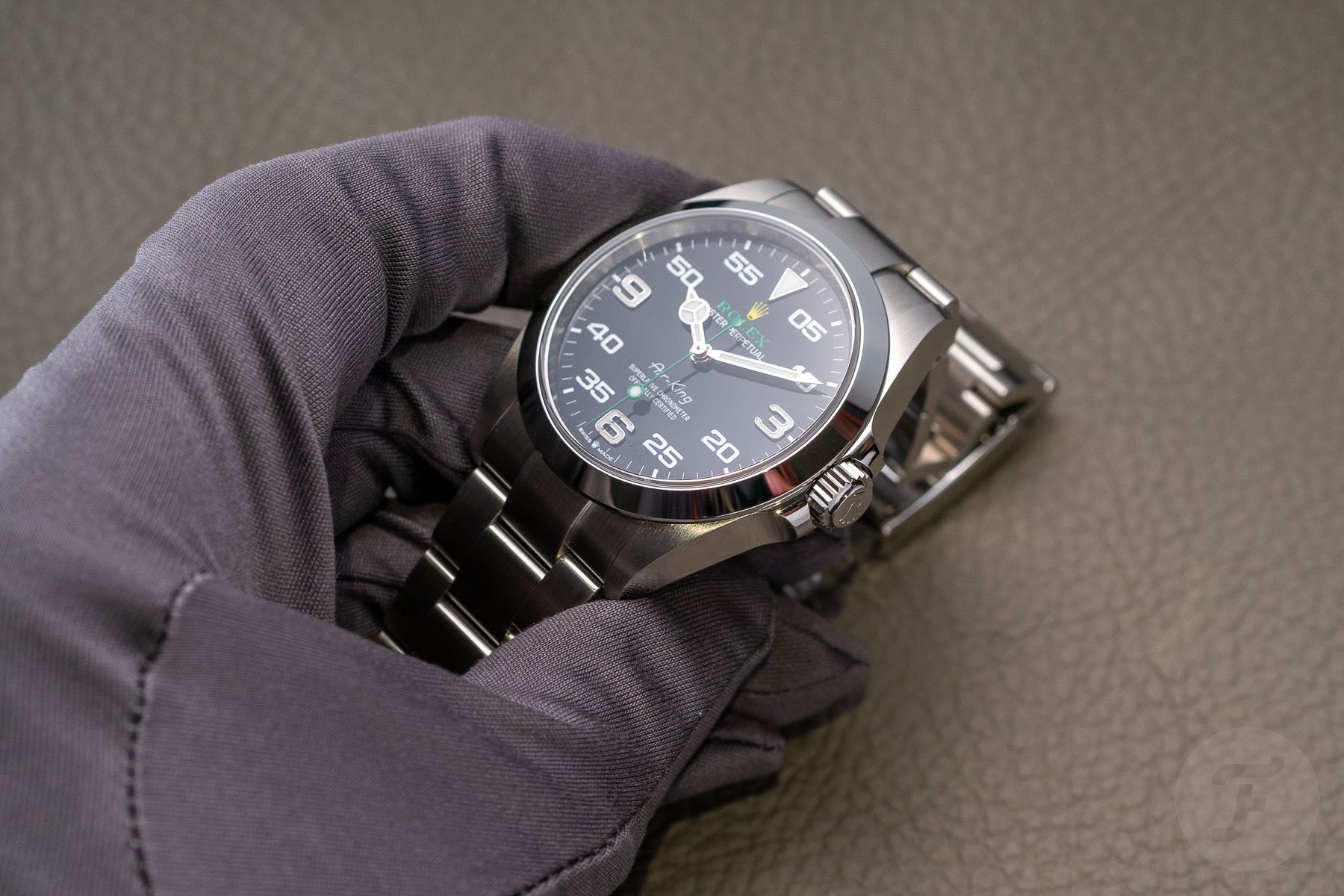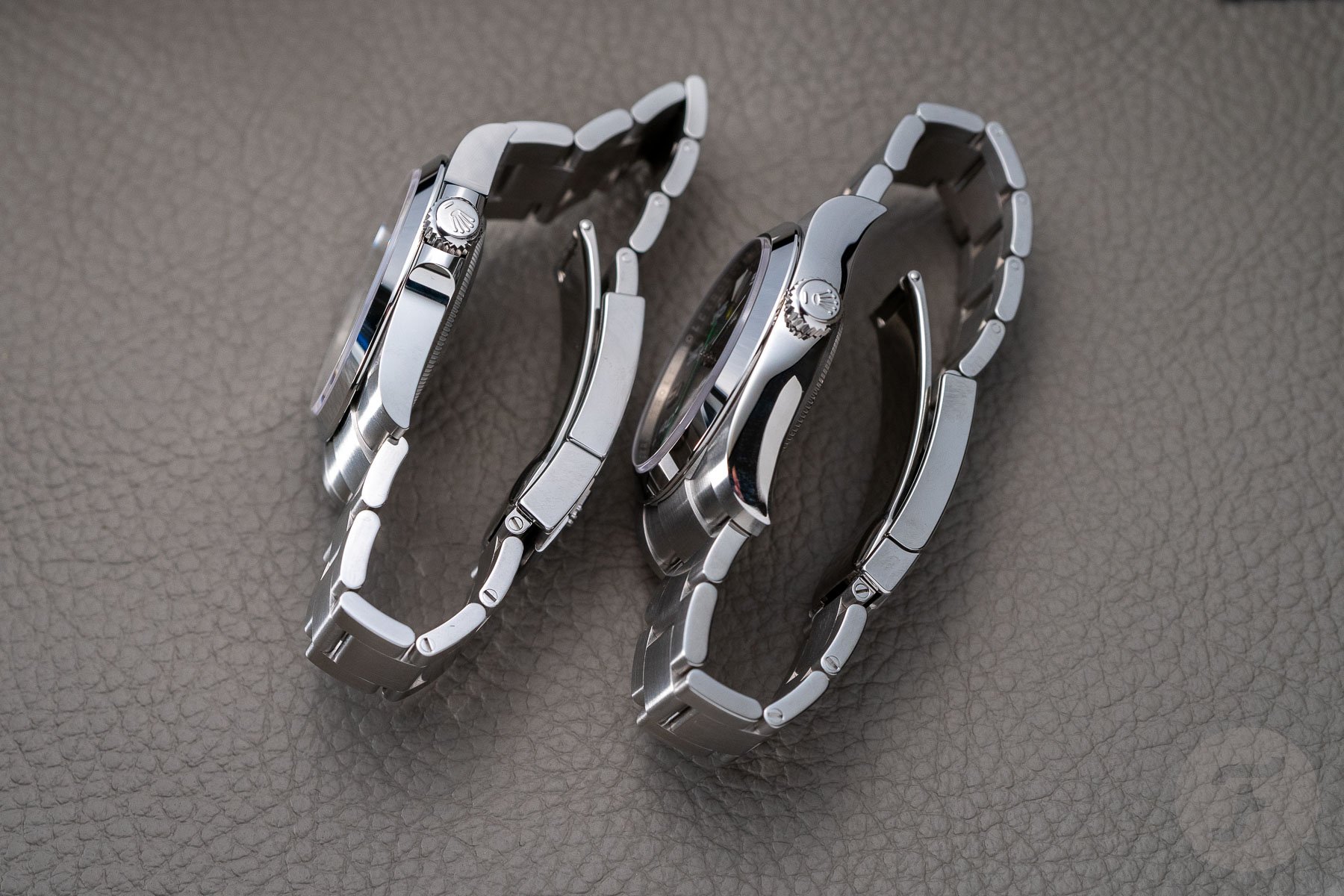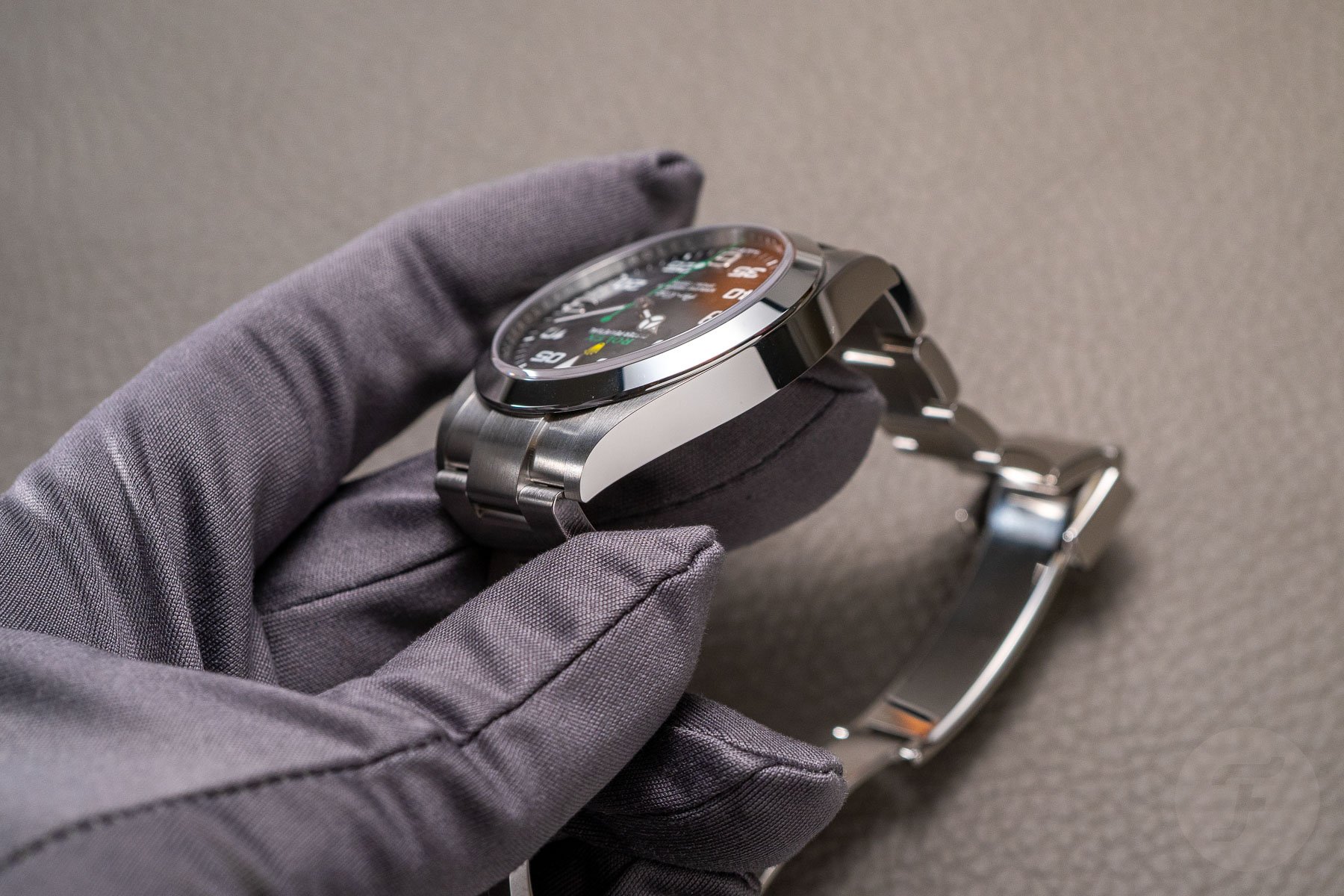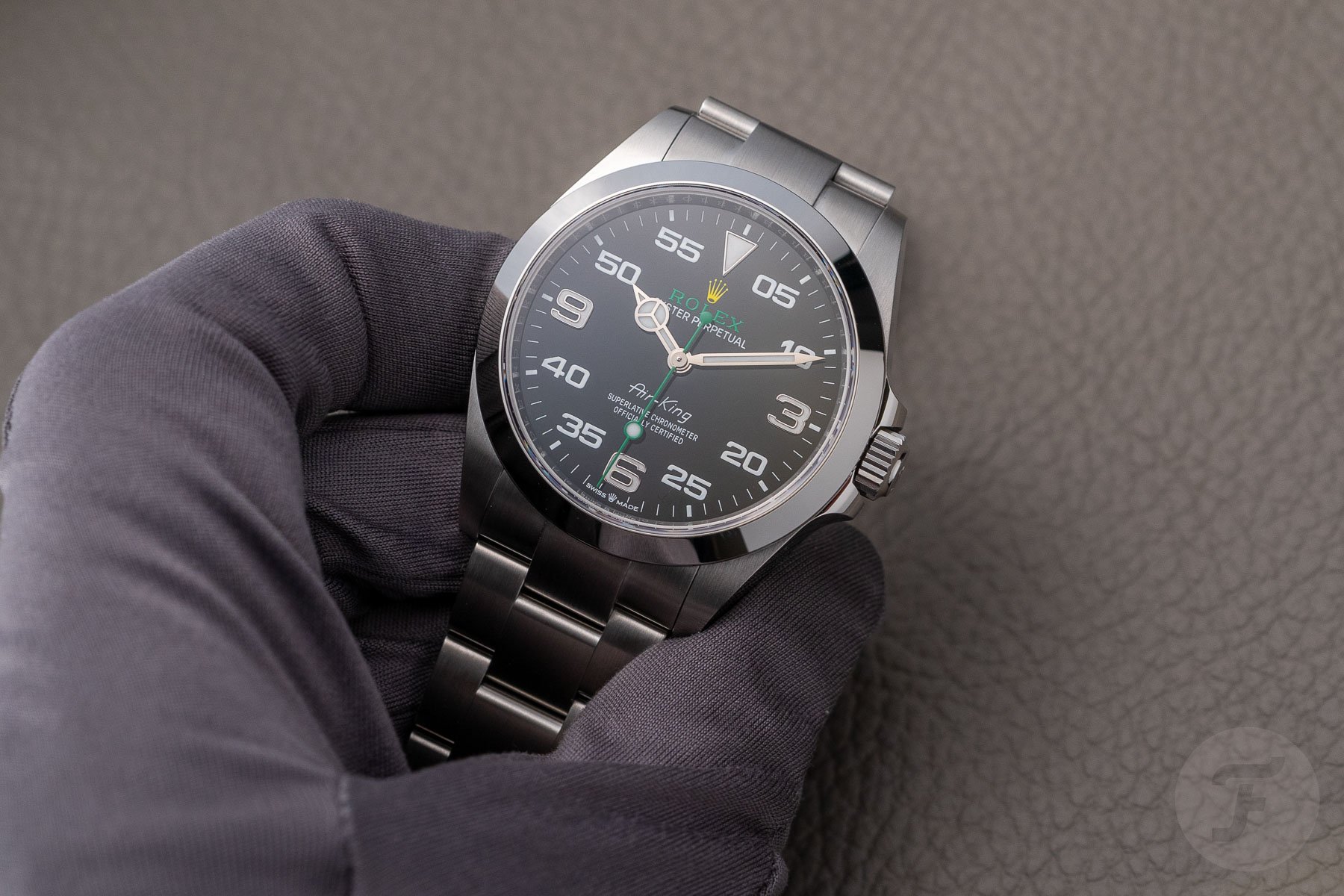The New Rolex Air-King — A Watch I Never Thought I’d Find Myself Lusting After
“Thin Line Between Love and Hate” is a 1971 song by R&B vocal group The Persuaders. Of course, the song is not about watches. No, it’s a tragic song that warns not to take advantage of a woman’s love and acceptance because, one day, her love might turn into hate. So what does the song have to do with the new Rolex Air-King? Well, I hated the previous version — the reference 116900, that is — but I love the new reference 126900. When I saw the new watch during Watches And Wonders, to my great astonishment, I instantly liked it. It made me realize that there is indeed a thin line between love and hate, and I kept hearing that song in my head whenever I came across the watch. But what exactly turned my dislike into the complete opposite?
Before I answer that question, I have to mention an article I wrote in March of this year. In The Circle Of Watch Life, I wrote that nothing lasts forever, not even Rolex watches, and that the Air-King could well be heading for the scrapyard. Well, it was and it wasn’t. The Air-King reference 116900 that debuted in 2016 was indeed laid off. Rolex, however, didn’t terminate the model completely but replaced it with the reference 126900. I predicted it wrong and right at the same time. But what I could never have predicted was that I would see myself lusting after a modern-day Air-King, a watch that is more or less the same as its predecessor. More or less, indeed. But the devil is in the details, as they say. And the details have turned everything around for me.
A “real” new Rolex Air-King
Yes, the newest Air-King is still a polarizing watch that mixes and matches a 1940s military style with the large Arabic numerals of the Explorer. And yes, the watch is nothing like the original reference 5500 from 1957. The understated, simple, no-nonsense beauty with a functional background is nowhere to be seen in the 2022 watch. Rolex has steered clear of a watch that has a longstanding history of being the entry-level Oyster Perpetual for service members and aviators. The original Air-King, with its 34mm case (that was positively oversized back in the 1940s) and non-chronometer “Precision” movement, will forever be a thing of the past. The last “real” Air-King debuted in 2007. The reference 1142XX series received some serious upgrades and reworkings, but it still remained true to the original model. The series was axed in 2014, but two years later, a completely revised Air-King appeared.
New, but not improved
“New and improved.” You’ve read it on a box of cereal. Well, it could also have been on the box of the reference 116900 Air-King that appeared at Baselworld 2016. But that’s only because the then-new Air-King was, for the first time in its career, a Superlative Chronometer. That was thanks to the caliber 3131 inside the massive 40mm case. From 34 to 40mm is a giant step in the watch world. It’s not very evolutionary and, therefore, not very Rolex-like. And apart from the shocking new size, the dial proved to be even more of a shock. The looks of the Air-King reference 116900 are the result of a collaboration between Rolex and the Bloodhound land-speed record attempt. Rolex helped construct the supersonic car’s dial cluster, and many of the design cues made their way to the dial of the Air-King.
To shine, or not to shine: that is the question
There’s nothing wrong with inspiration found outside the world of watches, but translating a foreign design element into a watch is not easy. Nobody cares that on a purely functional speedometer, the “5” doesn’t have a “0” in front of it to balance the dial design of the instrument. On a watch dial, however, that does matter immensely. You can’t ignore aesthetics on a modern-day wristwatch, no matter its instrumental inspiration or history. But that wasn’t all. It was the 3, 6, and 9 numerals that put me off the most.
When Rolex introduced the 116900 Air-King, the brand also presented the 39mm Explorer 214270 MK2 with luminous 3, 6, and 9 numerals. These numerals replaced the high-polished, applied 18K white gold numerals of the 214270 MK1. It made perfect sense. The Explorer is a tool watch, and as such, it needs numerals that you can read in low-light scenarios. That also goes for the Air-King, of course. It is a pilot’s watch, after all. But, strangely enough, the 2016 Air-King came with the glossy 3, 6, and 9 numerals that were dismissed from the Explorer dial. It was strange, illogical, and very disappointing.
Why I like, no, lust after the new Rolex Air-King
I like the new Rolex Air-King for a lot of small reasons that add up to a big difference when compared to the previous iteration. First, the shiny 3, 6, and 9 numerals have been replaced by luminous ones. It not only makes more sense from a functional angle, but it also just looks better. The shiny Arabic numerals never excelled in readability, neither by day nor by night.
Second, the added “0” in front of the “5” finally brings balance to the minute indicators. The updated design would make zero difference on a speedometer, but it makes all the difference on a watch dial. What also helps to create a dial with better balance and subtlety is that the minute numerals are slightly slimmer. The bezel is actually slimmer as well, which leads to a 0.8mm larger dial diameter than the 116900 Air-King. The devil is indeed in the details.
There’s another case to be made for the new Air-King
A nice evolution is also the switch from a rounded case with a polished side to a way more chiseled one. It still has a 40mm diameter and a lug-to-lug length of 49mm, but the height dropped from 13.1mm for the 116900 to 11.59mm for the 126900.
You see, the previous reference used the case from the Milgauss and caliber 3131 with an anti-magnetic Faraday case construction. The new Air-King 126900, however, houses the new Rolex caliber 3230. This movement is equipped with both a Parachrom hairspring (also found in the 3131) and Rolex’s latest nickel-phosphorous Chronoergy escapement. This nickel-phosphorous alloy is highly resistant to magnetism, and so, when combined with the properties of the Parachrom hairspring, the newest Air-King no longer needs the Faraday cage construction. Rolex took the opportunity to create an all-new Oystersteel case, and the visual result is both slimmer and more athletic. The new Air-King lost “weight”, and also thanks to its broader “shoulders” and edgy crown guards, it looks way sharper and more “in shape” than the discontinued model.
The crown, by the way, is bigger too. It also has a more noticeable fluted design. And the sturdy three-link Oyster bracelet finally got the functional safety-lock clasp. All these little detail changes make for one big difference in overall appearance. The newest Air-King — a 100m water-resistant watch — is now a worthy member of Rolex’s Professional line-up. On the wrist, the new Air-King is sporty, but not in an overpowering way. It’s slim enough to even be called refined. And the dial is wild and exuberant, but also charming and fun. In other words, the new Air-King is pretty versatile.
Now what?
I’m smitten by the new Rolex Air-King, that much is clear. I like the unusual look that now actually works and the fact that this pilot’s watch now makes functional and instrumental sense. But I can’t take the €7,000 that Rolex wants for it to the nearest authorized dealer to buy it. That, however, doesn’t put me off. Not immediately, anyway. I have good hopes that next year, it will actually be possible to buy a steel Rolex at an official dealer once again; there are plenty of signs that fuel my optimism. I cling to the motto that states that anticipation is half the fun. I’ll find out how long the anticipation will actually bring me fun. I give it 12 months, tops. Wish me strength.
For more information about the new Air-King, please visit the official Rolex website.
Please find and follow me at Lex Stolk • Instagram

